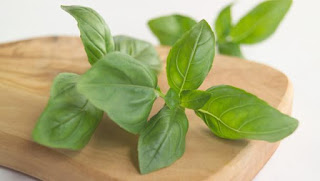BALTIMORE — New findings from a large national claims database show the use of cholesterol-lowering statin drugs to be associated with an increased risk for Parkinson's disease (PD), contrary to previous research suggesting the drugs have a protective effect for PD.
"We identified 20,000 Parkinson's disease patients and looked at whether using statins was associated with a higher or lower risk, and we found people using statins have a higher risk of the disease, so this is the opposite of what has been hypothesized," senior author Xuemei Huang, MD, PhD, vice chair for research at Penn State College of Medicine, Hershey, Pennsylvania, told Medscape Medical News.
While high cholesterol has been shown to have a protective effect on the risk for PD, the role of statin use has been the subject of debate.
Among studies supporting a benefits was research published in 2012 in the Archives of Neurology showing a "modest Parkinson's disease reduction" with the use of statins.
In looking at the issue in a previous study of their own, Dr Huang and colleagues in fact found an increased risk associated with statin use, and they sought in the new study to further explore the association in a much larger cohort.
For the new study, presented here at the American Neurological Association (ANA) 2016 Annual Meeting, the researchers turned to data from the MarketScan Commercial Claims and Encounters database, including information on 30,343,035 persons aged 40 to 65 years between January 1, 2008, and December 31, 2012.
Of the subjects, 21,559 were identified as having PD on the basis of criteria of having a primary or secondary diagnosis, using anti-Parkinson's medication, or having deep-brain stimulation surgery.
In the cross-sectional analysis, the use of cholesterol-lowering drugs, including statins or nonstatins, was associated with a significantly higher prevalence of Parkinson's disease (odds ratio [OR], 1.61 - 1.67; P < .0001) after adjustment for age, sex, and other comorbidities, such as hyperlipidemia, diabetes, hypertension, and coronary artery disease.
For a comparative neurodegenerative group, the researchers also looked at the association of statin with diagnosis of Alzheimer's disease but found only a minimal association (OR, 1.01 - 1.12; P = .055).
The associations of cholesterol-lowering medications with PD were strongest among patients with hyperlipidemia, and there were no significant differences between lipophilic or hydrophilic statins, as well as the other nonstatin cholesterol-lowering drugs, in their effect on PD risk.
"We know that overall weight of the literature favors that higher cholesterol is associated with beneficial outcomes in Parkinson's disease, so it's possible that statins take away that protection by treating the high cholesterol," Dr Huang explained.
"Another possibility is that statins can block not only the cholesterol synthesis but also synthesis of coenzyme Q10 that is essential for cell function."
The researchers also stratified persons according to how long they had been receiving treatment by using a lagged matched case-control analysis of 2458 pairs of PD cases and controls.
In the cross-sectional analysis, both statins and nonstatin cholesterol-lowering drugs were associated with PD, but in the lagged case-control analysis of treatment duration, only statins remained significantly associated with PD risk.
The highest risk was linked to the earlier period after starting statins (OR, 1.93 for less than 1 year of use; 1.83 for 1 to 2.5 years; and 1.37 for 2.5 years or more; P trend < .0001).
"The increased risk of Parkinson's is more likely when statins are first used, so we think it could be that the statins 'unmasked' Parkinson's," Dr. Huang said. "Namely, people may be already on the way to Parkinson's and when they use statins to control the high cholesterol, it gives Parkinson's a push to reveal its clinical symptoms.
"Based on this data, we think caution should be taken before advancing statins to be protective of Parkinson's disease," she added. "The data are not clear yet."
A meta-analysis published earlier this year in the journal Pharmacoepidemiology and Drug Safetysuggests that one reason for the inconsistencies in evidence of the role of statins is that many studies fail to adjust for cholesterol levels.
In that report, studies that did not make the adjustment showed a protective effect of statins (relative risk, 0.75), but those that did adjust for cholesterol or hyperlipidemia showed no protective effect: Those adjusting for hyperlipidemia had a relative risk of 0.91, and for cholesterol, the relative risk was 1.04.
"The apparent protective effect of statins on risk of Parkinson's disease is at least partially explained by confounding by statin indication," the authors said.
In addition, a separate meta-analysis published in the Journal of Neurology in 2013 suggested that there is a significant publication bias in recent literature toward reporting protective effects of statins in PD.
"The current study is one of very few studies reporting potential negative effects of statin in Parkinson's disease," Dr Huang noted.
The study was funded by grants from the National Institutes of Health, Pennsylvania State University College of Medicine-Milton S. Hershey Medical Center, General Clinical Research Center (GCRC), GCRC Construction, and the Center for Applied Studies in Health Economics. The authors have disclosed no relevant financial relationships.
Graham

































